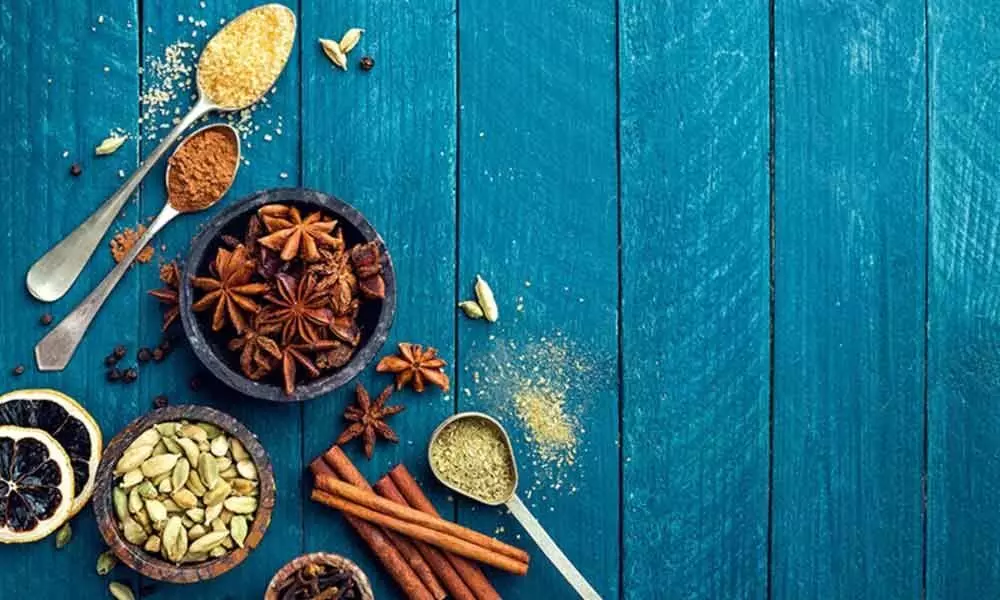Winter spices

Now that we have entered the relatively colder months, we have a different assortment of herbs and spices that keep us warm
How blessed are we that we live in a country like India? We have an abundance of seasonal fruits, vegetables, herbs and spices! As a nutritionist, nothing makes me happier than to have a variety of different options available for my clients.
Saffron
It is the most expensive spice in the world but all you need is a strand or two. The deep rich colour of saffron indicates that it is antioxidant-rich. Saffron has anti-bacterial, anti-viral and mucous drying properties so it is best consumed in the winter when one is prone to a bout of cold and cough. I add it to my rice, in hot water and so on as it truly increases the quality of any food even when used just as a garnish.
Cinnamon
In the last few years during winter one tends to consume more sugars in form of dry fruits like dates and jaggery. Thus I use cinnamon extensively in preventing, reversing and retarding blood sugar levels and other cardiovascular diseases. In pre-diabetics, it works miraculously overcoming elevated sugars. Cinnamon can ease symptoms of PCOS by reducing fasting glucose, insulin resistance and blood sugar levels. In cardiovascular diseases bringing a positive effect on the fatty liver as well as the cholesterol and triglycerides.
Methi seeds
Methi(fenugreek) prevents joint pains in winter as well as lowers blood sugar levels seeds hence proves to be a boon for diabetic patients. It comes from the green leaves of a fenugreek plant. It can act as an herbal remedy in reducing the symptoms of menopause and can also reduce the pain during pre-menstrual periods.
Nutmeg
Nutmeg relaxes you and keeps you warm and snug in winter months. A bit of nutmeg grated at night as less as one gram mixed in 3o ml warm milk will help induce sleep.
Pepper
Known as the king of spices – it is more valuable than gold. Let me tell you that black pepper has more health properties than we know of due to its antioxidant and antibacterial properties. Its outer layer stimulates the breakdown of fat cells, keeping you slim and simultaneously giving you the energy to burn. It also acts a natural diuretic.
Dry Ginger powder
The warming effect of soonth (dry ginger powder)ginger makes it a natural decongestant, making it the best remedy for cold. No wonder, your grandma asks you to drink ginger tea when you are down with cold. Ginger reduces joint pain, fever, helps improves nausea, controls spasms of intestinal. Ginger stimulates digestive enzymes. Its helps digest proteins. Add it in your teas vegetable juices herbal infusions Traditional winter sweets and pickles have a fair amount of ginger in it.
Even though these spices are packed full of medicinal benefits, you must make sure that you do not consume them in excessive amounts or by themselves. Doing so can harm the lining of your stomach. Additionally, remember that spices need to be cooked in good quality fat like cow's ghee to increase their bioavailability.
So enjoy the spices and flavours that come with the cold months. Add them to your vegetables, dals, rice and other preparations like tea, coffee or herbal infusions. My favourite is the kashimiri kawa which is rich in spices like saffron and cinnamon.











